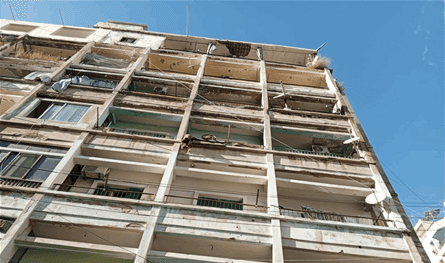
Maryam Harb – Mtv
The raids exposed the trafficking of citizens’ health. The violations were massive, and the toxins reached the Lebanese plate, and the result was an increase in the health bill. The “pressures” carried out by the concerned authorities following up on the food safety issue did not deter those who sold their conscience and did not adhere to food safety standards from marketing their spoiled products.
The Director General of the Ministry of Economy, Dr. Muhammad Abu Haidar, did not hide that the inspections conducted by the Ministry from the beginning of the year 2025 until the month of September, which amounted to 15,598 inspections of ovens, patisseries, butcher shops and fisheries, restaurants, and stores that sell foodstuffs, revealed major problems and non-compliance with food safety standards. He stressed, in an interview with MTV, that as a result of some violations, the Ministry followed the food supply chain to withdraw the goods and prevent them from reaching the citizen.
The concerned authorities worked to write arrest reports against anyone who violated safety standards and anyone whose goods did not meet health conditions, and the competent judiciary’s advice was taken to close it. Abu Haidar confirmed that “goods imported from abroad are examined by the Ministry of Agriculture or the Ministry of Economy, and goods that do not meet the conditions are prevented from entering the Lebanese market.” As for the goods manufactured in Lebanon, he pointed out that “there are those who impersonate industrialists and try to promote goods that do not meet the conditions, and here is the role of the regulatory and security agencies and the ministries concerned with combating this issue and destroying corrupt and carcinogenic materials.”
Abu Haidar hoped that “the National Food Safety Committee will be formed because it is responsible for monitoring food safety, and it is responsible for following up on this file with the five relevant ministries, namely Economy, Agriculture, Health, Industry, and Interior.”
The National Food Safety Committee was included in the Food Safety Law issued in 2015, No. 35. This law specified how the committee was formed, its members, and its resources. It also specified its tasks, work, crisis management, and oversight work. Since that time, this committee has not seen the light of day, despite its importance, as it is its responsibility to establish the applied mechanism for food safety and citizen food security in a way that limits the high cost of the health bill and the impact on the national economy.
Anyone who believes that food safety is limited to the quality of the product only is wrong. It extends beyond that to drinking water supplies, the method of disposal of solid waste and waste water, insect control, the cleanliness of sinks, food containers and equipment, the floor and walls, lighting and ventilation, and employee rooms and clothing. In addition to receiving and storing raw materials, semi-finished products and finished products, and ensuring freezing, refrigeration and transportation facilities.

















